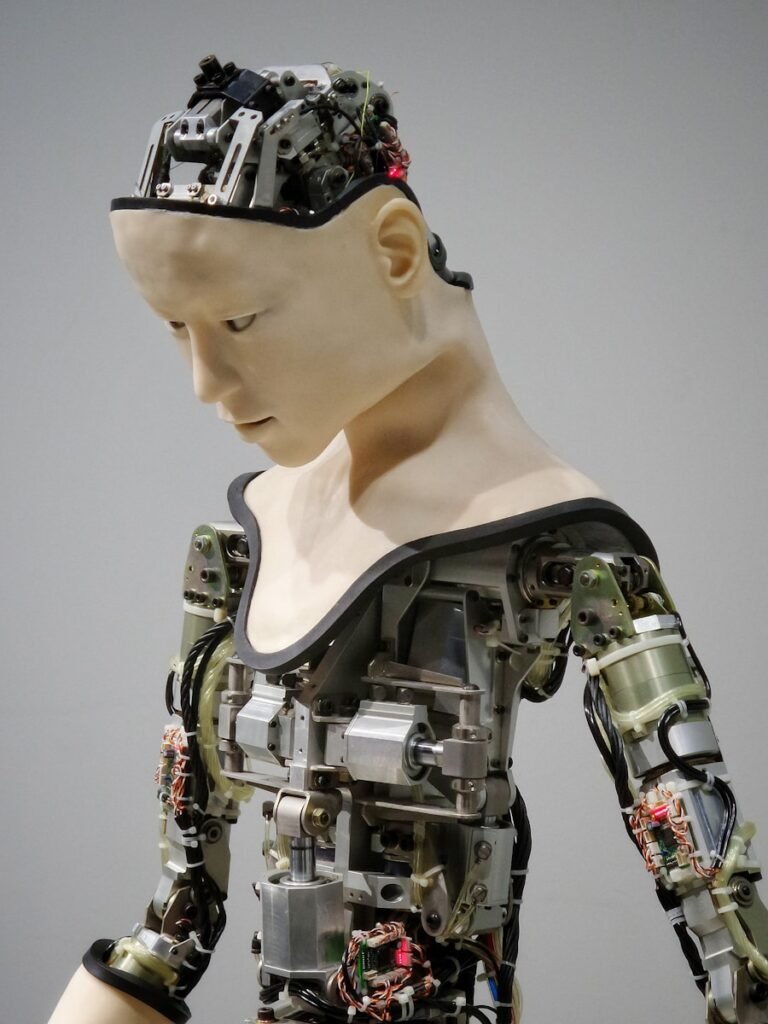
Understanding the Bias in AI
AI bias is like a mischievous phantom it sneaks around, unseen and unpredictable, only to materialize when you least anticipate it. Just as your mother possesses an uncanny ability to detect when you’ve indulged in the final cookie, AI bias has a talent for unveiling itself in the most bewildering manners. One moment you’re innocently perusing through your social media timeline, and suddenly, AI algorithms bombard you with advertisements for feline-themed products simply because you once chuckled at a humorous cat video. Coincidence? Doubtful.
It’s crucial to recognize that bias in AI isn’t always deliberate. As the esteemed technologist Tim Berners-Lee famously stated, “The web is more of a societal creation than a technical one. I crafted it with a social objective to facilitate collaborative efforts among individuals.” Likewise, AI mirrors the society within which it operates, inheriting all its magnificent flaws and prejudices. Therefore, when AI begins making decisions that appear slightly askew, it’s not out of malice rather, it’s attempting to navigate through the convoluted human realm we have constructed.
Unconscious Bias in Algorithms
Algorithms are the enigmatic sleuths of the digital realm, delving into vast mountains of data in pursuit of unraveling the mysteries of efficiency and convenience. Much like their real-life counterparts, they harbor their own idiosyncrasies and blind spots. The presence of unconscious bias within algorithms is akin to that elusive companion who subtly inserts their own agenda without your awareness. It’s not a deliberate act of malice, but rather a gentle push in a particular direction that may yield unexpected results.
Picture this scenario: your beloved AI assistant suddenly begins exclusively recommending French cuisine because it mistakenly assumes you harbor a fondness for baguettes and croissants. Such whimsical blunders can transpire when algorithms inadvertently favor specific groups or notions over others. As Joy Buolamwini, the mastermind behind the Algorithmic Justice League, astutely articulates, “The coded gaze embodies the inherent bias in artificial intelligence molded by prioritizing one entity over another.” It’s analogous to spotlighting French pastries on the menu while relegating spicy tacos to obscurity.
Impact of Biased Data on AI
Picture this: you’re imparting wisdom to an inquisitive AI about the vast expanse of our world. You inundate it with a plethora of knowledge to nurture its intellect, but uh-oh, you inadvertently introduce some skewed information into the mix. What unfolds next is akin to administering soda instead of water to a plant- it may survive, but it certainly won’t flourish.
The essence of biased data within AI is comparable to peering at reality through a distorted set of lenses; objects are discernible, yet lacking clarity. In the words immortalized by Melvin Kranzberg, “Technology is neither good nor bad; nor is it neutral.” Thus, when partial information infiltrates AI systems, it transcends beyond mere data- it alters the perspective through which our digital entities perceive their surroundings.
Addressing Fairness in Artificial Intelligence
In a world where Artificial Intelligence (AI) seeps into every crevice of our existence, the perplexing question of fairness arises. The burstiness of AI’s influence is undeniable – from curating playlists to diagnosing illnesses, its reach knows no bounds. But as we become more reliant on these algorithms, the complexity of ensuring unbiased decisions looms large.
The journey towards fair AI is fraught with challenges that boggle the mind. As the old adage gs, “To err is human, but to really mess things up requires a computer.” It’s not that computers possess inherent bias; rather, it seeps in through the skewed data they are fed. Imagine training a machine learning model with data that tilts towards one perspective – akin to expecting a student to ace an exam armed with only half the textbook! This bias can perpetuate stereotypes and discriminate against specific groups. Navigating this realm demands caution and vigilance to ensure our creations mirror society’s ideals of diversity and equity.
AI carries with it a weighty responsibility for ethical and equitable use – much like any other potent tool at our disposal. As we meander through the intricate landscape of AI development, we must constantly challenge our assumptions and beliefs. In the wise words of Pedro Domingos, “People fret about computers becoming too intelligent and seizing control; yet their true folly lies in their ignorance as they’ve already taken over.” Let us harness AI’s potential to enrich our lives while steadfastly upholding principles of fairness and inclusivity.
Challenges of Achieving Algorithmic Fairness
Traversing the vast landscape of AI development presents us with one of the most perplexing conundrums – how do we maintain algorithmic fairness? Imagine this: you’re attempting to bake a cake using a recipe that has remained unchanged since the 1950s. While it may evoke nostalgic delight for some, it spells disaster for others with dietary restrictions or contemporary palates. This is the enigmatic puzzle we must solve when faced with biased algorithms; they resemble outdated recipes that fail to keep pace with modern demands, leaving certain groups marginalized.
As we plunge deeper into the realm of AI, we are confronted with complexities comparable to teaching a cat to retrieve objects. It’s not an insurmountable task, but it necessitates patience, comprehension, and adaptability. Just like training a feline companion, achieving algorithmic fairness requires meticulous attention to detail, continuous learning, and readiness to rectify errors along the way. It is a voyage that evokes the sagacious words of Grace Hopper: “The most dangerous phrase in the language is ‘We’ve always done it this way.'” In the ever-evolving domain of AI, we must heed her counsel and embrace change in order to ensure equity for all.
Ethical Considerations in AI Development
In the labyrinthine world of AI ethics, one cannot help but be perplexed by the myriad trade-offs and uncertainties that abound. Jaron Lanier’s profound words remind us of the delicate balance between progress and morality in this ever-changing technological landscape. The enigmatic nature of artificial intelligence forces us to confront ethical dilemmas at every turn, from the shadows of privacy concerns to the echs of bias that reverberate through our algorithms.
Elon Musk’s ominous warning serves as a stark reminder of the potential dangers that lurk within the realm of AI development. As we traverse this uncharted terrain, we are faced with a colossal responsibility to harness this immense power ethically. The very essence of our creations demands careful consideration and contemplation as we navigate through this chaotic sea of innovation.
Strategies for Mitigating Bias in Algorithms
Mitigating bias in algorithms is a perplexing challenge, but as they say, nothing worth achieving comes easy. So, how exactly do we go about unraveling this complex puzzle? One strategy is to kick things off by infusing diversity into the teams crafting these algorithms. In the wise words of Anita Borg, “The key to ensuring fairness in our algorithms lies in embracing varied perspectives right from the get-go.”
Another clever tactic involves incessantly scrutinizing and assessing these algorithms for any signs of bias. As Andrew Ng sagely pointed out, “Merely constructing AI algorithms isn’t sufficient; we must actively strive towards imbuing them with fairness.” This entails conducting regular audits, making adjustments when necessary, and remaining vigilant for any elusive biases that may have eluded detection. Believe me, nabbing those pesky culprits early on can spare you heaps of trouble down the line.
Importance of Diverse Representation in AI
The concept of diversity in AI is not just a trendy phrase – it holds the key to creating more inclusive and effective technology. Picture a scenario where AI systems are all developed by identical robots – it would be like being trapped in an endless cycle, repeating the same thoughts endlessly. However, introduce a mix of perspectives, voices, and experiences, and suddenly you have a formula for groundbreaking innovation that can revolutionize the field. As Maya Angelou wisely pointed out, “We all should know that diversity makes for a rich tapestry, and we must understand that all the threads of the tapestry are equal in value.”
When we discuss diverse representation in AI, we are not simply talking about meeting quotas or ticking boxes. We are discussing the creation of AI systems that can truly comprehend and cater to a wide range of users. Consider this – if the datasets used to train AI only reflect a narrow segment of society, then inevitably the outcomes will be skewed. It’s akin to playing chess with only half of the pieces – you may still make moves but you’re missing out on seeing the full picture. By incorporating diverse voices into decision-making processes, we can ensure that AI mirrors humanity’s diverse fabric and serves everyone equitably. In Desmond Tutu’s profound words, “Differences are not intended to separate us; they remind us of our need for each other.”


